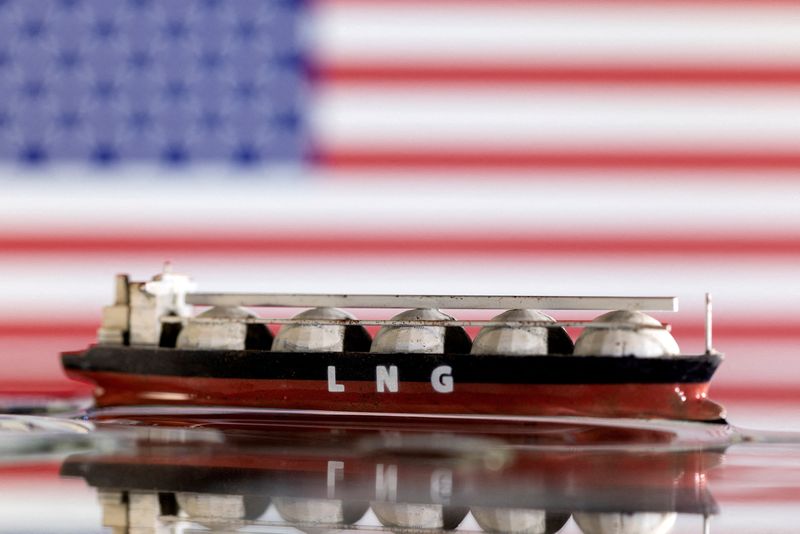(Reuters) -Federal regulators on Thursday approved a Louisiana liquefied natural gas project that has been a lightning rod for environmental activists and an energy policy litmus test for President Joe Biden's administration.
The Federal Energy Regulatory Commission (FERC) voted 2-1 to allow construction and operation of the Calcasieu Pass 2 LNG plant and a related, 85-mile-long (137 km) pipeline. Outgoing FERC Commissioner Allison Clements cast the dissenting vote.
"These projects will have enormous emissions of greenhouse gases, equivalent to putting more than 1.8 million new gas-fueled cars on the road each year" Clements said.
The multibillion-dollar export plant proposed by Venture Global LNG would supply 20 million metric tons a year of the superchilled gas to customers in Europe, Japan, China and to U.S. exporters.
“This project will be critical to global energy security and supporting the energy transition, as well as provide jobs and economic growth across Louisiana and the United States," Venture Global said in a statement after the vote.
Environmentalists have criticized the project, saying it would entrench use of fossil fuels that emit tons of pollution into surrounding communities while exacerbating global warming. FERC's approval clears the way for Alexandria, Virginia-based Venture Global to become the second-largest U.S. LNG exporter, behind Cheniere Energy. The company has two plants operating or under development in Louisiana and aims to build 100 million tons of LNG capacity in the future.
The plant is the first to win a construction authorization since the Biden administration in January put a pause on future LNG export permits to review economic and environmental implications. That review is expected to wrap up after the U.S. presidential election in November.

Environmental activist Bill McKibben called the FERC approval a travesty for science and environmental justice, noting that this has been the hottest summer in human history.
"It underscores just how crucial and brave Biden’s decision to pause new permits may turn out to be. It’s now the only defense against the indefensible," said McKibben, a Schumann Distinguished Scholar at Middlebury College.